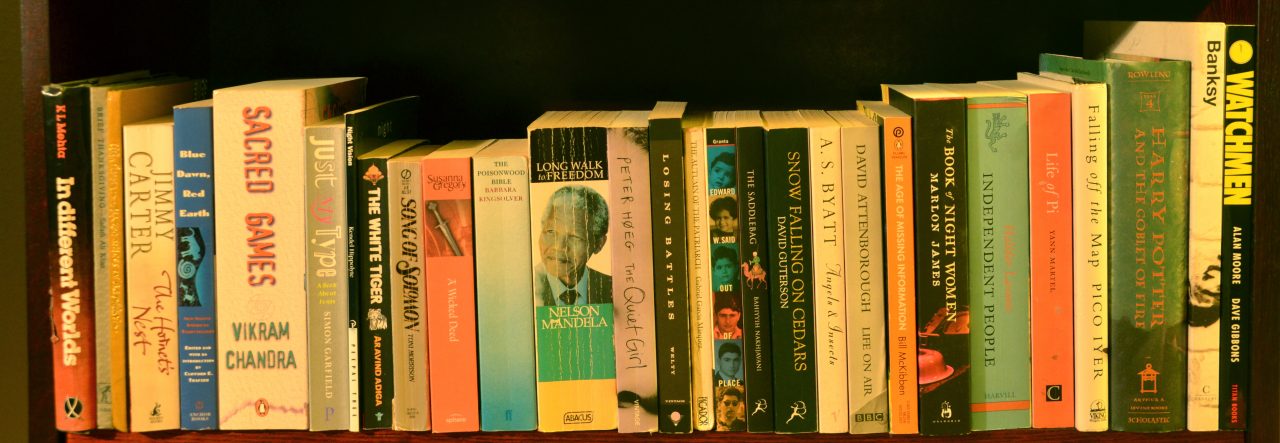Published by Penguin Random House / Vintage / Knopf Canada, 2012, 560 pages.

As the book begins, Damini commits a crime because she believes there is no choice. No one sees her commit it except the goddess Anamika Devi (the Unnamed One), but it haunts her. With this incident, Shauna Singh Baldwin sets up the theme of the book: how women cope in a society where they are not valued, where they have to fight for the freedom to live as they want.
Damini works for Mem-saab, an elderly deaf woman living in Delhi. Damini is not only her carer but also her ears, and the women are very close. Mem-saab is a Sikh widow, whose sons squabble over their inheritance. One of them moves in with his mother, bringing his family with him, ostensibly to take care of her but actually to persuade her to sell her house. Eventually, Mem-saab, realizing that her sons would never stop harassing her, dies. It is an open question whether she committed suicide or not. Damini has her suspicions but says nothing. Unable to support herself, Damini moves to Gurkhot to live with her daughter and her sick son-in-law.
Anu is a middle-class housewife in Delhi, living with her husband Vikas, daughter Chetna and Vikas’s parents. Vikas is violent, but his parents seem to think that Anu should just put up with it. Anu sends Chetna off to her cousin in Canada and, once Chetna is gone, she files for divorce—a move frowned upon by everyone around her. Looking for a safe place, she joins a Catholic order, feeling that it would be the last place that Vikas would look for her. She ends up as a nurse in Gurkhot.
But The Selector of Souls is not just about women in India. Singh Baldwin also brings in the abortion of girl foetuses, HIV, class distinctions and religion, in particular the rise of the Hindu far right that Vikas, his parents and Damini’s son Suresh are all part of.
This is an angry book. Most of the men don’t come off well at all—Vikas is a truly nasty piece of work, Suresh isn’t much nicer and even Anu’s uncle Sharad, to whom she goes for help, betrays her. The head of the mission, Father Pashan, is a good man but he is never really developed. The fact that there are almost no good men makes the book feel a little unrelenting.
It gets a little preachy towards the end, when Damini holds a religious ceremony to appease the god Lord Golunath. During the ceremony, the ojha (priest) channels Lord Golunath and speaks out on women’s rights, which seems a little unlikely, given that almost every other male in the book has opposed them. It does feel like she uses this and Damini’s channelling of the goddess Anamika (which is more convincing) to lecture her readers. That is a pity—it takes away from a strong novel.
But the two main characters are well drawn, and you invest in their journey to find their place in the world and to make a difference, no matter how small. And there is hope in the end, when the women discover and learn to use the strength that they had all the time.

Pingback: Best books of 2019 | Talking About Books